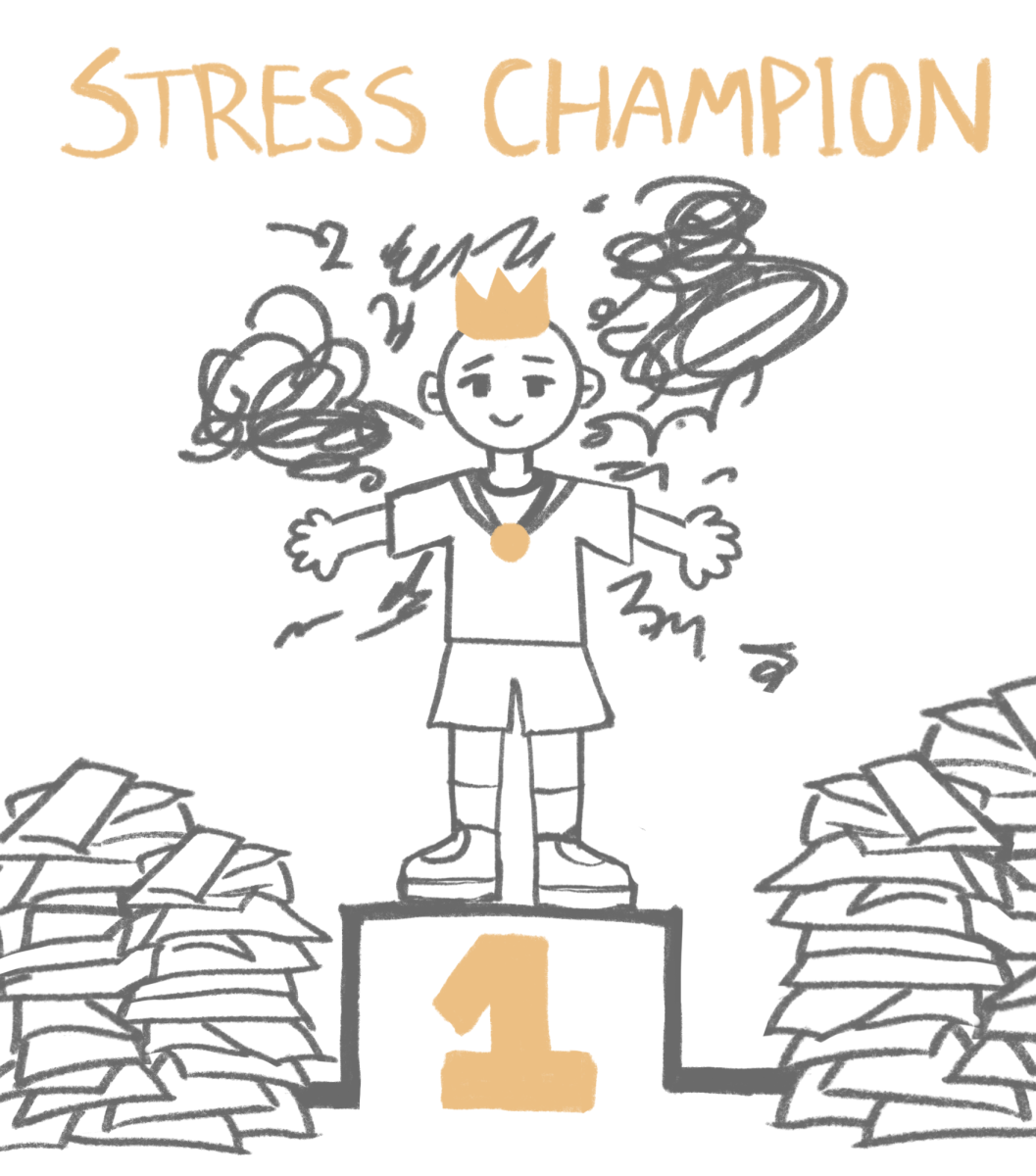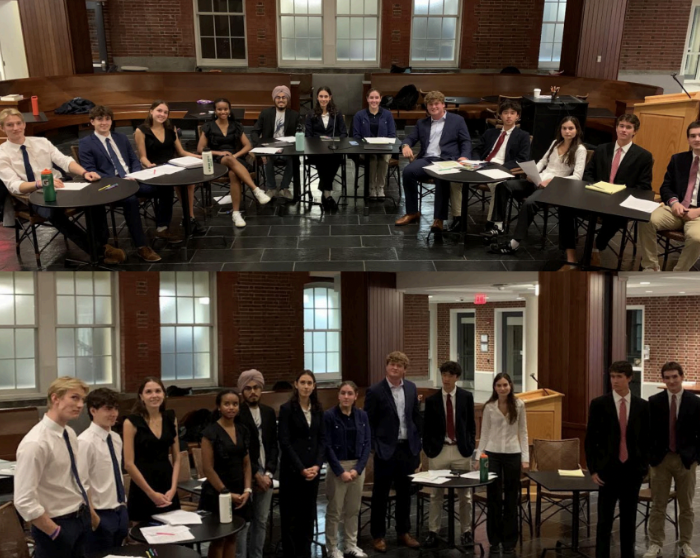It can come in the form of your first late night spent finishing a homework assignment, first lunch break packed with studying, or even just the feeling of breathless apprehension before a highly anticipated major assessment. It is felt during a dorm check-in spent complaining about an immense workload or in Chapel listening to a speaker lament over a notoriously challenging class. At some point in every Groton student’s career, there is a moment where we begin to think of stress as a rite of passage. Although our community strives to emphasize the importance of health and effective stress management, students often develop unhealthy habits in pursuit of lofty academic, athletic, and social goals. This toxic level of stress is often celebrated or even glorified amongst the student body, contributing to a culture that needs to change moving forward.
The normalization of taking drastic measures when studying, resulting from stress and competition surrounding workloads, is something that developed fairly recently. This may be a result of increased academic pressure. “I think there is a lot more emphasis on grades in general,” said math teacher and former Groton student Michael Gnozzio ’03. “When I was here, we had two people in our class graduate summa cum laude so there was a lot less stress related to perfectionism.” Today, increased stress about grades drives us to work harder even if that means developing unsustainable life habits.The result is that this new glory found in stress manifests itself in conversations that often turn into competitions.
Of course, stress is a normal part of life and of the Groton experience. But the glorification of unhealthy coping mechanisms extends far beyond a mere rite of passage and stimulates a culture of competitiveness and fatigue. “I think the competition extends to who can push themselves the most and who can be the most stressed,” said Active Minds Head Eleanor Taggart ’24. “If you have Second and Third Formers listening to Fifth and Sixth Formers talk about these behaviors that they’ve developed, these role models are encouraging unhealthy levels of stress.”
There is a fine line between connecting with people who are stressed through expressing discontent with one’s own workload or making unrealistic and unhealthy means of studying seem like something that should be strived for, rather than avoided. Academic Dean Kathy Leggat even described the conversations around stress at Groton as a “game” in which students constantly feel the need to compare themselves to or compete with others. This comparison is something we need to eliminate from the conversation around stress and workloads.
Moving forward, we must take measures to denormalize this glorification around unhealthy stress levels at Groton and most importantly, separate the desire to find success from developing habits that are detrimental to students in the short and long term. Instead of promoting a stress oriented culture, Eleanor explains that we must “actually share experiences and suggest concrete healthy habits instead of giving pieces of advice such as ‘sleep more’ or encouraging unhealthy behaviors through frequently discussing them.” If we discuss stress and the culture we have developed around it from a perspective of giving each other informed advice and offering support instead of portraying unhealthy habits as a normal experience or part of a competition surrounding who can do more, we can denormalize and dismantle the glorification of stress.






